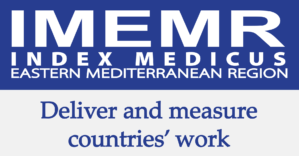Etiology, clinical features, and outcomes in acute-on-chronic liver failure patients in the intensive care unit of a quaternary care center
DOI:
https://doi.org/10.53685/jshmdc.v6i1.283Keywords:
Acute-on-Chronic Liver Failure, Etiology, Clinical OutcomesAbstract
Background: Multi-organ failure and a sharp decline in liver function are hallmarks of acute-on-chronic liver failure (ACLF), carrying high mortality.
Objective: To determine the etiology, clinical presentations, and the mortality outcome in patients with acute-on-chronic liver disease.
Methods: In this retrospective study, medical records of 109 patients admitted to the Intensive Care Unit (ICU) of Pakistan Kidney and Liver Institute and Research Center, Lahore, Pakistan, from 1st January 2022 to 31st August 2023 with ACLF were included after ethical approval (PKLI-IRB/AP/149). Data regarding demographics, clinical features, comorbidities, Child-Turcotte-Pugh (CTP) score, Chronic Liver Failure Consortium (CLIF-C score), Model for End-stage Liver Disease-Na (MELD-Na), and ACLF grades were recorded, and their outcome in terms of mortality was noted.
Results: The mean age was 47.4 ± 10.5. The primary cause of cirrhosis was hepatitis C virus (HCV) infection (52.3%), followed by cryptogenic cirrhosis (14.7%). According to the CTP score, 95.4% of the patients had Child-Pugh class C cirrhosis, and 52.3% were classified as grade 3 ACLF. Out of 109 patients, only 31 survived, with a mortality rate of 71.6%. Acute decompensation was mainly secondary to hepatic encephalopathy precipitated by infections and variceal bleeding. The non-survivors had significantly higher INR=3.4 ± 1.8 vs 2.6 ± 1.1 (p=0.002) and ammonia levels =230.1 ± 241.7 µg/dL vs 125.7 ± 65.7 µg/dL (p=0.002) on ICU admission compared to those who survived. The mean MELD-Na score at hospital admission was 32.9 ± 6.5, and in ICU admission was 34.7 ± 6.7 (p<0.001), but was not significant regarding survival (p=0.195). The CLIF-C score increased from 50.4±10.1 (in ward) to 56.1 ±10.2 (ICU transfer) (p<0.001) and was also higher in non-survivors compared to survivors (p<0.001). It is observed that increasing CLIF-C scores is a sign of poor prognosis.
Conclusion: HCV infection was the most common cause of cirrhosis, and hepatic encephalopathy was the common trigger for ACLF. A high INR, hyperammonia, advanced ACLF grade, and an increase in CLIF-C score lead to poor outcomes in terms of survival, while worsening of CLIF-C scores may additionally predict short-term mortality.
References
Br VK, Sarin SK. Acute-on-chronic liver failure: Terminology, mechanisms and management. Clin Mol Hepatol. 2023; 29(3): 670-689. DOI: https://doi.org/10.3350/cmh.2022.0103
Sarin SK, Choudhury A, Sharma MK, Maiwall R, Al Mahtab M, Rahman S, et al. Acute-on-chronic liver failure: Consensus recommendations of the Asian Pacific association for the study of the liver (APASL): An update. Hepatol Int. 2019; 13(4): 353-390. DOI: https://doi.org/10.1007/s12072-019-09946-3
Perricone G, Jalan R. Acute-on-chronic liver failure: A distinct clinical syndrome that has reclassified cirrhosis. Clin Liver Dis. 2019; 14(5): 171-175. DOI: https://doi.org/10.1002/cld.857
Jalan R, Gines P, Olson JC, Mookerjee RP, Moreau R, Garcia-Tsao G, et al. Acute-on chronic liver failure. J Hepatol. 2012; 57(6): 1336-1348. DOI: https://doi.org/10.1016/j.jhep.2012.06.026
Arshad A, Usman AA. Epidemiology of hepatitis C infection in Pakistan: Current estimate and major risk factors. Crit Rev Eukaryot Gene Expr. 2017; 27: 63–77. DOI: https://doi.org/10.1615/CritRevEukaryotGeneExpr.2017018953
Hafsa F, Chaudary ZI, Tariq O, Riaz Z, Shehzad A, Jamil MI, Naeem I. Acute-on-chronic liver failure: Causes, clinical parameters, and predictors of mortality. Cureus. 2024; 16(1): e52690. DOI: https://doi.org/10.7759/cureus.52690
Khan RS, Khan MS, Saeed F, Kazmi SK, Siddiqi FA, Din RU. Acute-on-chronic liver failure-outcome and its predictors in a tertiary care hospital. Pak Armed Forces Med J. 2022; 72: 190-193. DOI: https://doi.org/10.51253/pafmj.v72i1.6415
Butt AS, Sharif F. Viral hepatitis in Pakistan: Past, present, and future. Euroasian J Hepatogastroenterol. 2016; 6(1): 70-81. DOI: https://doi.org/10.5005/jp-journals-10018-1172
Trebicka J, Fernandez J, Papp M, Caraceni P, Laleman W, Gambino C. et al. PREDICT identifies precipitating events associated with the clinical course of acutely decompensated cirrhosis. J Hepatol. 2020; 74(5): 1097-1108. DOI: https://doi.org/10.1016/j.jhep.2020.11.019
Moreau R, Jalan R, Gines P, Pavesi M, Angeli P, Cordoba J, et al. Acute-on-chronic liver failure is a distinct syndrome that develops in patients with acute decompensation of cirrhosis. Gastroenterolo. 2013; 144(7): 1426-1437. DOI: https://doi.org/10.1053/j.gastro.2013.02.042
Hussain A, Patel PJ, Rhodes F, Srivastava A, Patch D, Rosenberg W. Decompensated cirrhosis is the commonest presentation for NAFLD patients undergoing liver transplant assessment. Clin Med (Lond). 2020; 20(3): 313-318. DOI: https://doi.org/10.7861/clinmed.2019-0250
Trebicka J, Fernandez J, Papp M, Caraceni P, Laleman W, Gambino C, et al. The PREDICT study uncovers three clinical courses of acutely decompensated cirrhosis that have distinct pathophysiology. J Hepatol. 2020; 73(4): 842-854. DOI: https://doi.org/10.1016/j.jhep.2020.06.013
Vos T, Lim SS, Abbafati C, Abbas KM, Abbasi M, Abbasifard M, et al. Global burden of 369 diseases and injuries in 204 countries and territories, 1990–2019: A systematic analysis for the Global Burden of Disease Study 2019. Lancet. 2020; 396: 1204–1222. DOI: https://doi.org/10.1016/S0140-6736(20)30925-9
Luo J, Li J, Li P, Liang Xi, Hassan HM, Moreau R, et al. Acute-on-chronic liver failure: Far to go—a review. Crit Care. 2023; 27 (1): 259. DOI: https://doi.org/10.1186/s13054-023-04540-4
Tasneem AA, Luck NH. Acute-on-chronic liver failure: Causes, clinical characteristics and predictors of mortality. J Coll Physicians Surg Pak. 2017; 27(1): 8-12.
Al Kanaani Z, Mahmud S, Kouyoumjian SP, Abu-Raddad LJ. The epidemiology of hepatitis C virus in Pakistan: Systematic review and meta-analyses. R Soc Open Sci. 2018; 5(4): 180-257. DOI: https://doi.org/10.1098/rsos.180257
Blach S, Terrault NA, Tacke F, Gamkrelidze I, Craxi A, Tanaka J, et al. Global change in hepatitis C virus prevalence and cascade of care between 2015 and 2020: A modelling study. Lancet Gastroenterol Hepatol. 2022; 7: 396–415. DOI: https://doi.org/10.1016/S2468-1253(21)00472-6
Bhatti R, Bughio U, Hassan A, Soomro AH, Iqbal J, Ali M. Assessment of the predictors and mortality in patients of acute on chronic liver failure; A Prospective Study. Ann Pak Inst Med Sci. 2022; 18(3) :222-227. DOI: https://doi.org/10.48036/apims.v18i3.663
Puentes JCP, Rocha H, Nicolau S, Ferrão G. Effectiveness of the MELD/Na score and the Child-pugh score for the identification of palliative care needs in patients with cirrhosis of the liver. Indian J Palliat Care. 2018; 24(4): 526-528. DOI: https://doi.org/10.4103/IJPC.IJPC_97_18
Kim RW, Biggins SW, Kremers WK, Wiesner RH, Kamath PS, Benson JT, et al. Hyponatremia and mortality among patients on the liver-transplant waiting list. N Engl J Med. 2008; 359 (10): 1018-1026. DOI: https://doi.org/10.1056/NEJMoa0801209
Kumar R, Mehta G, Jalan C. Acute-on-chronic liver failure. Clinical Med. 2020; 20 (5): 501–504. DOI: https://doi.org/10.7861/clinmed.2020-0631
Downloads
Published
How to Cite
Issue
Section
License
Copyright (c) 2025 Saleem Sharieff, Fariha Khan, Wajid Ali Rafai, Arslan Saleem Chughtai, Burhan Ahmed, Umar Farooq

This work is licensed under a Creative Commons Attribution-NonCommercial 4.0 International License.
You are free to:
- Share — copy and redistribute the material in any medium or format
- Adapt — remix, transform, and build upon the material
- The licensor cannot revoke these freedoms as long as you follow the license terms.
Under the following terms:
-
Attribution — You must give appropriate credit, provide a link to the license, and indicate if changes were made. You may do so in any reasonable manner, but not in any way that suggests the licensor endorses you or your use.
-
Non Commercial — You may not use the material for commercial purposes.
-
No additional restrictions — You may not apply legal terms or technological measures that legally restrict others from doing anything the license permits.





















